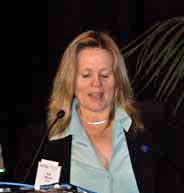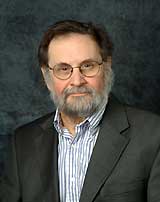Phoenix Rising Team submitted a new blog post:
Lot's of Questions at Int. XMRV Work Shop Q&A...and one BIG Answer?
Posted by Cort Johnson
Lot's of Questions at Int. XMRV Work Shop Q&A...and one BIG Answer?
Posted by Cort Johnson
 No 'Flip' Yet: The Workshop did not, as we hoped, turn out to be the place where the research world flipped from worrying about how to find the virus to figuring out what it does and how it does it. According to one report Dr. Ruscetti said he, at least, was turning his attention from diagnosis to pathogensis but it was clear that many others were not. The Q&A session revealed a hard-nosed bunch of researchers who want to get matters nailed down before they move on. The NCI chiefs response to Dr. Ruscetti's question about funding (none planned) indicated that the Institute was waiting for the testing issues to get ironed out before it would as well. Indeed, the second really major bit of positive news (see below for the first), thus far, to come out of the Workshop was the creation of a new diagnostic task force under the direction of an ace pathogen detective Dr. Lipkin. XMRV continues to be hung up - at least in the views of many of these researchers - on the horns of the disparate PCR results.
No 'Flip' Yet: The Workshop did not, as we hoped, turn out to be the place where the research world flipped from worrying about how to find the virus to figuring out what it does and how it does it. According to one report Dr. Ruscetti said he, at least, was turning his attention from diagnosis to pathogensis but it was clear that many others were not. The Q&A session revealed a hard-nosed bunch of researchers who want to get matters nailed down before they move on. The NCI chiefs response to Dr. Ruscetti's question about funding (none planned) indicated that the Institute was waiting for the testing issues to get ironed out before it would as well. Indeed, the second really major bit of positive news (see below for the first), thus far, to come out of the Workshop was the creation of a new diagnostic task force under the direction of an ace pathogen detective Dr. Lipkin. XMRV continues to be hung up - at least in the views of many of these researchers - on the horns of the disparate PCR results.
Slow Progress - Dr. Stoye had hoped to have answers by now. With three more negative and three positive studies reported Dr. Coffin stated "we’re still in a zone of chaos where.... we don’t have agreement on almost anything in this. We have to work toward that right now" Interestingly, Dr. Coffin tried to damp down what he appeared to feel were overly exuberant expectations of success, stating that he felt, at this still early stage of the game, that things were moving about as expected. "It’s really quite a short time. It takes a long time, to set up, say to set up the blood working group panel, it’s been probably six months of talking and deciding and so on before we began to get samples really in… so it’s only couple of months that we’ve been working on that. So I’m quite optimistic that say within the next year there will be a synthesis of this to the point where not necessarily everyone’s using exactly the same assay" Others felt results would appear more quickly. Dr. Stoye, in fact, expected to get results 'very, very quickly' (whatever that means in 'researcher time'!) and others have stated they believe the Blood Working Group to have some standardized assays ready by Christmas.
Dr. Mikovits argument that the human retroviruses have been, in the early stages of our understanding of them, difficult to assess using PCR and that antibody tests are more appropriate appeared to fall on deaf ears - at least in that group. Dr. Sing, however, noted how difficult it was to get human papillomavirus (not a retrovirus) nailed down using PCR, and yet how much progress they made when they finally did do that: "if we look at the HPV research, in the early age of HPV research, there was a struggle of HPV detection and once that was validated and clear, there was tremendous progress in HPV research and then there was the HPV vaccine development".
ME/CFS Patients Being Undercut? - Dr. Mellors, the Chief of Infectious Diseases at the Univ of Pittsburg, felt that ME/CFS patients concerns were being undercut by a Blood Working Group focused mostly on the safety of the blood supply. He argued that a much more extensive testing procedure involving a neutral party disseminating samples to multiple laboratories using their own methods should be underway. (This appears to be identical to what Dr. Enlander has proposed and is reportedly working on) Dr. Holmes of the Blood Working group stated they were getting all their samples from the WPI but that they were from a wide geographic area and Dr. Mikovits backed him up on that. Dr. Sing agreed on the need for more widespread testing and also descried the inability of the research community to work together (something the research community has been descrying about itself for about six months) stating "All of this is dependant on highly accurate, sensitive, specific assays. So some sort of coordinated effort among these laboratories using different assays, different platforms, I think that will make tremendous contribution to the field of XMRV research. So I really encourage you to work together...some kind of collaboration and coordination I think would really make this field move forward much faster, and I am looking forward to that."
THE ANSWER is At Hand? - In response to a question about the effects different 'collection and storage' techniques might have had on study results, Dr. Mikovits jumped in with an answer that threatened to make many of the questions asked above moot. It seems that just in the past few weeks, no doubt spurred on by the Alter/Lo findings, that the Blood Working Group may have uncovered a key problem plaguing some of the negative studies: "we have learned literally in past 2 wks in the BWG that processing may be a key and we may have found an opportunity to have a processing protocol where everyone would at least find viral RNA in plasma and blood products without culture." What an odd thing if something as simple as 'processing' problems (blood handling and storage?) were at the heart of all this mischief. Somehow, however, the discussion veered off onto another tangent after Dr. Mikovits startling response and we heard no more of this!
Treatment Trials - a good part of the Q&A was taken up on the treatment trial question with Dr. Coffin and Dr. Stoye coming out strongly against even small treatment trials until they had found a way to measure viral load using quantitative assays. After at first refusing to be drawn into the question of the validity of anti-retroviral treatments by a question from Hilary Johnson, (Dr. Mikovits is not a physician) Dr. Mikovits later argued they could learn alot now from treatment trials using immunological measures. Of course treatment trials in CFS always use accepted qualitative clinical measures of functionality, etc. and there are several of them but they are apparently too qualitative for the virologists at that table.
 Mindy Kitei started off the first clinical trial question section and then came back again later, questioning whether certain groups really wanted to find the virus. She pointed out that the CDC used the same German research unit to validate their results that was unable to find XMRV in prostate samples...(Hmmmmm). She asked - why not send them to the Cleveland Clinic instead...which seemed a reasonable question but the implications of it disturbed Dr. Stoye greatly, leading him to respond "I think we’ve heard enough of this particular line of questioning. I think nobody in this business is trying to get a negative result – it’s in nobody’s interest."
Mindy Kitei started off the first clinical trial question section and then came back again later, questioning whether certain groups really wanted to find the virus. She pointed out that the CDC used the same German research unit to validate their results that was unable to find XMRV in prostate samples...(Hmmmmm). She asked - why not send them to the Cleveland Clinic instead...which seemed a reasonable question but the implications of it disturbed Dr. Stoye greatly, leading him to respond "I think we’ve heard enough of this particular line of questioning. I think nobody in this business is trying to get a negative result – it’s in nobody’s interest."
Really, they both have their points. It's certainly not in the interests of Dr. Wessely or Dr. Kuppeveld or the CDC CFS Research group to find a retrovirus. On the other hand it's entirely in the interests of retrovirologists to find one whether they work at the WPI, the CDC's HIV division or elsewhere; another human infectious retrovirus (there are only two others) is huge news for their field. Now that some retrovirologists have staked out their ground on XMRV issue, of course, we have a different set of conflicts to worry about.....
The Cohort Question Again (and again and again) - One physician asked how accurate diagnoses can be based on physicians that may either place patients 'in' or 'out' of ME/CFS based on subjective criteria. Dr. Mikovits agreed stating that if "you look for various immunological defects rather than just subjective defects" you get better results. It was the idea of an immunological abnormality 'filter' that raised so much ruckus in the Science study. The WPI backed off on those stating those immunological abnormalities were not a requirement and now here they are again. Both Dr. Mikovits and Dr. De Meirleir, interestingly, stated they've found immunological signatures in XMRV infected patients; it'll be very interesting to see what they are.
 The Lo/Alter Results - Dr. Coffin readily acknowledged the validity of the Alter findings but was careful to ensure that everybody realized that the only virus that has actually been captured and sequenced is XMRV stating "I think before we start referring to a bunch of different viruses we really need to have viruses that go with those sequences. We can say there are sequences there that look like endogenous MLV’s, maybe a little bit different from them. But we just don’t have a virus yet to go with them." He agreed that Dr. Lo may have been onto something when he suggested that the CDC and other groups were unable to find the MLV's because they were using a 'leader sequence' that didn't match up with them. Looking at that will help clear up whether other MLV sequences are present are ME/CFS (but not why the Alter team missed XMRV).
The Lo/Alter Results - Dr. Coffin readily acknowledged the validity of the Alter findings but was careful to ensure that everybody realized that the only virus that has actually been captured and sequenced is XMRV stating "I think before we start referring to a bunch of different viruses we really need to have viruses that go with those sequences. We can say there are sequences there that look like endogenous MLV’s, maybe a little bit different from them. But we just don’t have a virus yet to go with them." He agreed that Dr. Lo may have been onto something when he suggested that the CDC and other groups were unable to find the MLV's because they were using a 'leader sequence' that didn't match up with them. Looking at that will help clear up whether other MLV sequences are present are ME/CFS (but not why the Alter team missed XMRV).
Dr. Alter/Lo are in much the same place Dr. Mikovits, Dr Ruscetti, Dr. Lombardi and the Cleveland Clinic were in a year and a half ago when they had sequences but not a complete virus and are now trying to produce one . Dr. Alter is reportedly trying to culture the MLV's they found in their study and completely sequence them.
Funding, Funding, Funding - Dr Ruscetti reminded everyone that a little thing called 'funding' was necessary to carry on this work - something he's clearly worried about - stating " But what fuels that is a practical thing called funding. So you’re involved in the extramural program of the NCI. What would it take for the NCI to increase funding in this area" and getting that standard response from someone who must, at least in some manner, be his boss: yes, we're all so interested in this subject and isn't it great that we're having this workshop (doesn't that demonstrate our interest?) and then stating that no' new funding directly devoted to XMRV will be coming until the testing problems are clarified. In fact, even then then all he would say was that he 'suspected'the NCI would then'look'at the issue: "As things develop and it becomes a little clearer what’s going on I think then certainly I would suspect that the NCI and NIH are going to look and see if there are things that would be appropriate to do - and if the money is available." Interestingly, he said the NCI has not had alot of grant requests, something an audience member suggested indicated that researchers are not willing to put alot of effort into a subject they still have questions about.
Dr. Coffin echoed the fact that the NCI has not put a dime of intramuural funding into XMRV, forcing researchers to divert their own resources into exploring- something that says something very special about researchers and the system they work under - but which also has its limits. " NCI has not put any extra $ intramural money for this purpose – yet an enormous amount of work has been done and a lot of funds have been diverted by all of us from our previous projects into this area. I think this is remarkable testimony to the resilience of American, European, international science, that, in fact that we can do this without the necessity for instantaneous top-down funding. However the momentum on this will tend to run out after a bit without additional money being put into it at some level or another. So it’s very important to sustain the momentum that we have so far."
Why is it So Darn Difficult? - Dr. DeMarzo at Johns Hopkins asked why, if XMRV plays such a central role -it was so darned difficult to find using all this ultra-sensitive PCR technology? Dr. Mikovits suggested that it wasn't that surprising at all investigators should rely on 'complementary methods (eg serology (antibodies)). Dr. McClure said she'd happy to grow the virus if she could find it but she couldn't find it using PCR or serology and then "I don't know what else we could do" which was a kind of amazing statement given the Blood Working Group and others appear to have found lots of 'other things to do'. Dr. Ruscetti then cut in, making Dr. Mikovits' point - that you cannot rely on PCR alone - in even stronger fashion stating "Negative PCR is not a stand-alone assay for detection of this virus in clinical samples." Nothing was resolved in that little exchange which threatened to get hot and the room moved on.
"The Disease Causes the Virus"? During a question about immune abnormalities Dr. Coffin made the interesting suggestion that the virus could be present in everyone and that something about the disease could allow it to show up in more sickly people. "I mean it’s still possible to entertain the idea that the disease causes the virus, and not other way around in a sense... or makes visible a virus that’s actually very prevalent, but it’s really such a low level in some, couple of cells somewhere in people, it only comes up because of the conditions surrounding these diseases."This is a question that can only be resolved with validated assays and more testing in more disease groups.
Dr. Mikovits, however, noted that the envelope of gammaretroviruses produces neurotoxins and that the HIV retroviral model - one retrovirus knocking down a part of the immune system - causing pathogens to flourish, fit ME/CFS pretty well.
Thanks to XMRV Global Action for the transcript!
